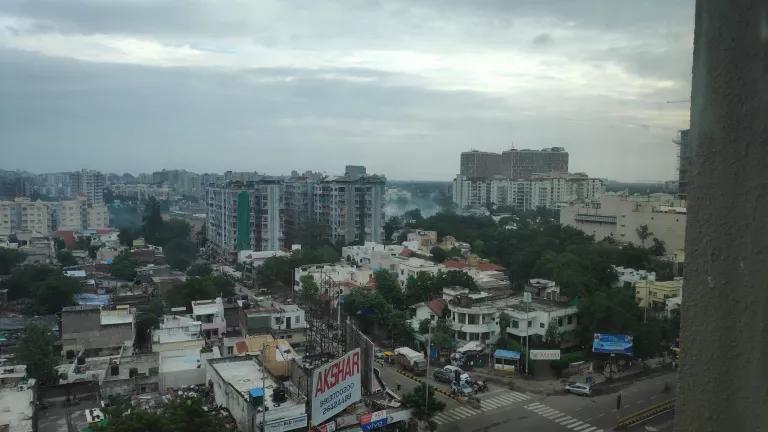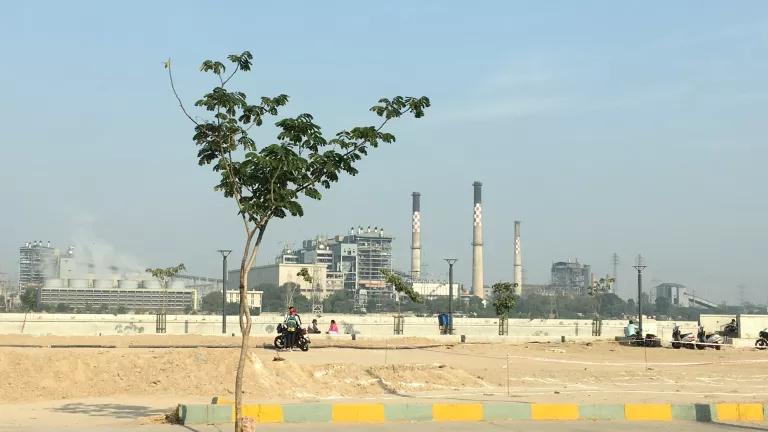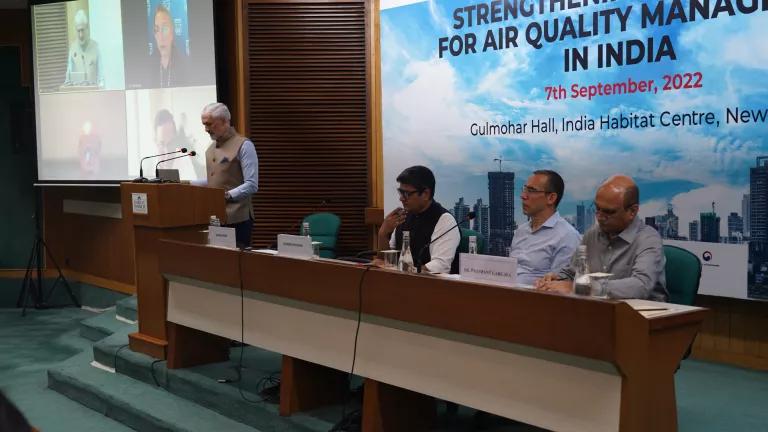Aiming for Clean Air, Blue Skies: Update from Gujarat
During the national COVID-19 lockdown, residents in major Indian cities marveled at the unprecedented clear blue skies. Recognizing that it should not take a pandemic for people to breathe clean air, cities across India are implementing air quality plans.
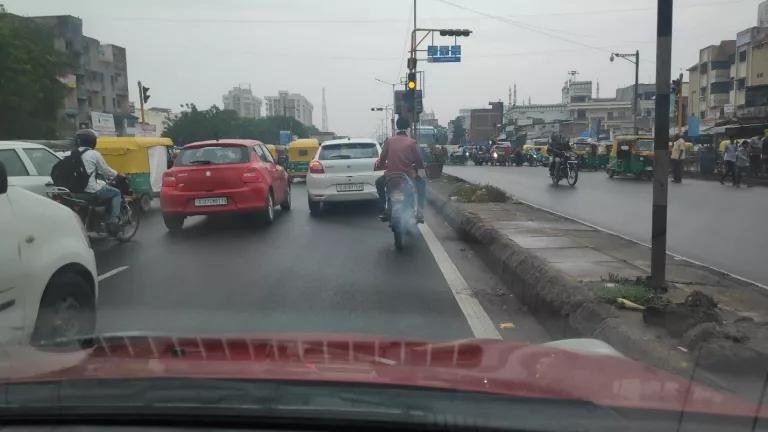
NRDC
Guest blog by Polash Mukerjee and Jessica Korsh
In designating September 7th as the International Day of Clean Air for blue skies, the United Nations reiterated that every human has the right to breathe clean air. This year’s theme, Healthy Air, Healthy Planet, emphasizes the connection between air quality climate change. Clear blue skies are something many in India marveled at during the COVID-19 lockdowns in major cities in the country. Recognizing that it should not take a pandemic for people to breathe clean air, cities across India are implementing air quality plans. City and state level air plans aim to work in close consultation with broader national interventions such as the recently announced major vehicle scrappage policy to phase out highly polluting vehicles.
While New Delhi is often featured in the news for its spiking air pollution, poor air quality affects most cities and non-urban areas. To improve air quality, the national government launched the National Clean Air Program (NCAP) in early 2019. The NCAP requires non-attainment cities, cities that do not meet the national air quality standards, to develop city-level Clean Air Plans (CAPs) to reduce outdoor pollution levels of particulate matter (PM). To date, there are more than 120 non-attainment cities across the country. PM sources include vehicle emissions, fossil fuel (coal) burning power plants, industrial activities, and waste burning. Small particle pollution, such as PM2.5, poses the greatest public health risk due to its ability to infiltrate the body.
In late 2020, the Indian government increased funding to cities to support CAP implementation and improve air quality through a performance-based grant program from the Finance Commission (FC). The air quality funding program was later extended to 2026. Gujarat is currently in discussions on how to effectively use these funds, with ideas including augmenting local capacity for air quality management and creating a dedicated cell, transitioning to clean sources of energy, and transitioning to electric mobility.
Embracing EVs is critical to reducing air pollution, improving public health, and slowing climate change. In June, Gujarat released its EV Policy. The EV policy aims to support electrification of 200,000 vehicles over the next four years and a 25 percent capital subsidy on charging station equipment/machinery (up to ₹1 million per station) for the first 250 public charging stations.
Ahmedabad is a leader in fighting air pollution and is one of three non-attainment cities in Gujarat. Ahmedabad is among the first cities in India where city leaders, state government, and civil society worked proactively together to address the country’s air pollution challenge with a focus on public health. In 2017, the city launched a groundbreaking air pollution monitoring and risk communication project, the Air Information and Response (AIR) Plan. The AIR Plan is part of a broader collaboration between Ahmedabad Municipal Corporation (AMC), NRDC, and other local public health and policy experts. NRDC is also working with experts in Gujarat to quantify air quality and health benefits of climate change mitigation and adaptation policies in Ahmedabad.
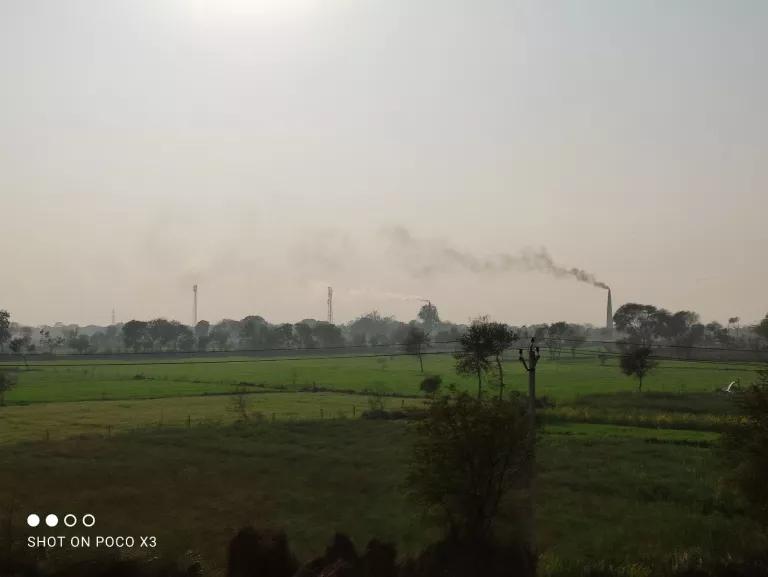
Gujarat to quantify adaptation policies in Aahmedabad
Ahmedabad is developing a hot-spot approach to air quality management and preparing a micro action air quality plan. The city will have a dedicated air quality management cell for centralized planning, implementation, and compliance. It will also establish a framework to utilize the FC funding. Gujarat’s actions on air pollution are timely as it revised its State Action Plan on Climate Change. The city can also utilize data from a recent source apportionment report by Gujarat Energy Research and Management Institute to better understand its emissions sources and create targeted interventions.
Clean air is essential for the health and day-to-day lives of people. The urgency to protect local communities from air pollution is greater than ever as COVID-19 limited progress on tackling air pollution. Exposure to air pollution affects lung health and worsens pre-existing health problems, compounding the public health risks from COVID-19. Given that air quality problems in India are often driven by pollution from the same fossil fuels that accelerate climate change, actions to reduce harmful emissions can achieve major wins for public health, for the environment, and for India’s economy. Reducing air pollution is also essential to reaching the UN 2030 Sustainable Development Goals.
Polash Mukerjee leads NRDC's air quality work as a consultant based in New Delhi.
Jessica Korsh is a climate and health expert working as a consultant with NRDC.


